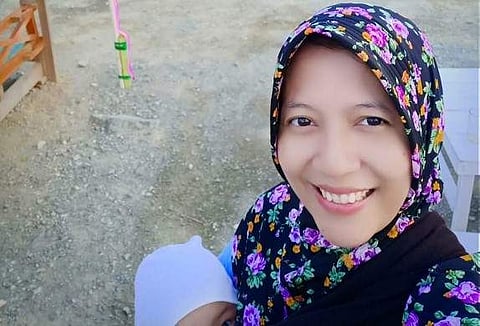

JAKARTA: Risa Kusuma was enjoying a quiet Friday evening in Palu, a seaside city where she and her family had just moved to escape Indonesia's chaotic capital, when suddenly the ground started shaking violently.
As the massive tremors threw them around like rag dolls, the terrified family of five managed to tumble out of their house and run along asphalt roads that were splitting under their bare feet.
"I thought it was doomsday," the 35-year-old told AFP, days after she and her three children made it back to Jakarta on a flight out of the disaster-stricken region.
"People everywhere were running and shouting out prayers.
"I saw electricity poles, fences and trees falling over, and people with their faces covered with blood."
She said she witnessed people falling into ditches or being thrown into the air.
As a barrage of aftershocks rocked the area, the scenes only became more nightmarish -- houses were being swallowed up and the level of the ground changed dramatically in places, with paddy fields lifted up into the air.
Kusuma and her family -- including a seven-month-old baby -- fled past numerous ruined houses, some of which had been split right down the middle.
"They looked like cakes that had been sliced open," she said.
The family lived in Petobo, one of the areas hardest-hit when Palu was rocked by a major earthquake and then pummelled by a tsunami.
It suffered from a terrifying phenomenon known as liquefaction, where the ground takes on the characteristics of a liquid during the intense shaking of a quake.
Satellite images show that over 2,000 houses and almost 170 buildings were destroyed in Petobo, according to the Indonesian aeronautics and space agency.
About two hours after the quake, Kusuma's family made it to the mayor's office along with many other desperate survivors and spent the night sleeping under a tarpaulin.
They were among the lucky ones, escaping with only bruises. Over 1,500 people have so far been confirmed dead, thousands injured and officials fear that about 1,000 people are still missing.
Some aid started arriving Saturday morning but as the security situation deteriorated, with people looting shops as supplies of food and water ran low, Kusuma became determined to get out of Palu.
"People were getting violent, because food and other basic necessities were scarce," she said.
On Tuesday she and her children headed to the badly damaged airport, where huge crowds of survivors were attempting to flee the beleaguered city, and scuffles were breaking out.
It was still closed to commercial flights but the government had a limited number of military transport aircraft ferrying people out.
Women and children were given priority, along with the badly injured. Kusuma and her kids got a spot on a flight and by the evening were back in Jakarta, just three months after they moved to Palu to join her husband who was working there.
The husband, Endi Syariful Said, had to stay behind in Palu where he is living in an evacuation centre -- and says their neighbourhood has been wiped off the face of the Earth.
"Our neighbourhood in Petobo is gone, it's just a muddy pool of water," Kusuma said.
"Maybe it's a mass grave now."